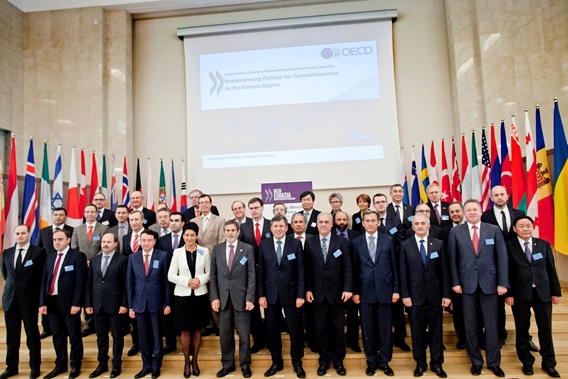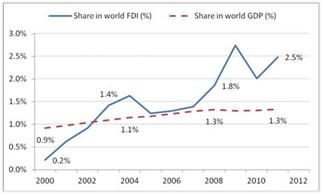OECD Eurasia Ministerial Conference
27-28 June 2013 - Warsaw, PolandOn 28 June 2013, Ministers and high-level representatives from Eastern Europe, South Caucasus and Central Asia, participating in the Global Relations, launched the Eurasia region’s first initiative to carry out peer reviews and monitor progress in implementing competitiveness reforms.
The meeting also released three policy handbooks for private sector reform in the region. The reports provide step-by-step guidance to implement reforms in vocational education and training, business linkage programmes and credit guarantee schemes.
Access the agenda: English | Russian
|
|
SPEAKERS
|
||||||||||
|
|
||||||||||||
|
The OECD Eurasia Competitiveness Programme advises governments on how to improve their business climates. The OECD works closely with governments of the region and the private sector to identify roadblocks to better investment, and SME development, and propose reforms that will create a more conducive business environment.
Learn more |
|
|||||||||||
Related Documents









